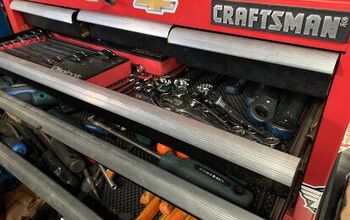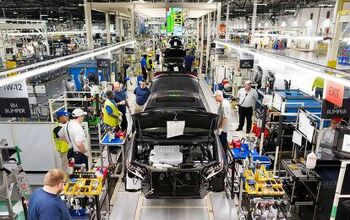Truckers Suggest Electronic Data Logging Hasn’t Made for Safer Roads

The Owner-Operator Independent Drivers Association (OOIDA) is claiming that the electronic logging device (ELD) mandates instituted by Congress in 2018 have failed to improve roadway safety in the United States – noting that fatalities involving large trucks have actually increased since its implementation. The group representing the truckers is asserting that the tracking devices provide no tangible safety advantages for drivers and is hoping to use the relevant data to oppose proposals seeking to expand the use of ELDs.
Last year, the Federal Motor Carrier Safety Administration (FMCSA) issued an advance notice of proposed rulemaking that included expanding the ELD mandate to include trucks with pre-2000 engines. If you’re unfamiliar with the units, they’re effectively an advanced and connected version of the old “tattlers” truckers had to contend with back in the day. Rather than just tracking mileage and operating time, electronic logging devices are attached directly to the motor to keep tabs on precisely when the engine is running, whether or not the truck is moving, and other details that someone nosy might want to track (e.g. positional data) in real-time.
This likewise established a more-consistent format to be used by businesses and government regulators by arguably helping create more comprehensive record-keeping based on more data than they've ever had access to.
Land Line – an outlet written by and for professional truckers, also serving as the official publication of the Owner-Operator Independent Drivers Association – asserted that many truckers despise ELDs because they feel they’re being spied on. This has likewise encouraged calls that the units are unsafe, as many drivers “feel rushed as they are regulated to the second.”
Considering the above, truckers aren’t remotely interested in seeing any expanded use case for electronic logging devices with groups formally standing against the new proposals.
“Our members have vigorously opposed the ELD mandate since its inception,” OOIDA President Todd Spencer wrote in a letter addressed to the Federal Motor Carrier Safety Administration. “There was never sufficient research indicating the mandate would improve highway safety, and the agency still lacks data demonstrating any positive safety results since its full implementation.”
The letter itself offers a rebuttal to numerous queries posed by the FMCSA about updated regulatory proposals and offers criticism that many of the regulatory actions taken by the government already exceed what’s necessary to determine compliance with hours-of-service (HOS) requirements. Interestingly, the hour-of-service requirements are – by law – supposed to be the sole purpose of the ELD mandates to ensure drivers are not risking public safety by exceeding their allotted hours behind the wheel. But drivers are alleging that the additional information offered by the units (and other fleet management devices) effectively places them under a microscope that discourages them from taking breaks when they actually need them. Additionally, suggestions were made that ELD mandates primarily benefit shipping companies and purveyors of the data logging devices – especially with there being little-to-no evidence that the widespread implementation of the units has reduced crashes involving large trucks.
“The agency lacks data confirming the ELD mandate has improved highway safety and has failed to demonstrate how the expansion of existing requirements to vehicles operating on pre-2000 and rebuilt pre-2000 engines would enhance safety,” the group explained in the letter. “OOIDA is unaware of any research that demonstrates vehicles operating under the pre-2000 exemption fail to meet the same level of safety as vehicles with ELDs.”
Using truck and bus statistics compiled by the FMCSA and released in December, the OOIDA noted that the number of deadly crashes involving trucks weighing more than 10,000 pounds has remained abnormally high. While the government only has data going back to 2020 (the last full year that’s been tabulated), there’s been a clear escalation of traffic fatalities.
According to the data, there were 3,622 fatal accidents in 2015, 4,177 in 2016, 4,367 in 2017, 4,461 in 2018 (the year ELDs were mandated), 4,502 in 2019, and 4,444 in 2020.
While that represents a steady increase, with the number actually dropping in 2020, it has to be said that the global response to the pandemic meant fewer people were on the roads. Though we know that per capita vehicular fatalities still climbed that year, as well as the number of fatalities calculated per mile of driving, based on data from the National Highway Traffic Safety Administration (NHTSA). In fact – going off the information we currently have – driving became significantly less safe in both 2020 and 2021, despite most Americans driving slightly less than they would have in previous years.
While that pertained less to truckers than people commuting to work, having fewer vehicles on the road, in general, should have resulted in fewer fatal incidents across the board. Instead, large trucks saw a modest decrease during the first year of lockdowns while the general trends showed more blood on the pavement than the United States had witnessed in over a decade. It may not be concrete evidence that ELD mandates backfired. But it certainly isn’t supporting any claims that these regulations are improving public safety.
For those interested in learning more on the matter, we recommend reading the Owner-Operator Independent Drivers Association's letter to the government and looking into the current regulations surrounding data logging devices from the Federal Motor Carrier Safety Administration.
[Image: Virrage Images/Shutterstock]
Become a TTAC insider. Get the latest news, features, TTAC takes, and everything else that gets to the truth about cars first by subscribing to our newsletter.

A staunch consumer advocate tracking industry trends and regulation. Before joining TTAC, Matt spent a decade working for marketing and research firms based in NYC. Clients included several of the world’s largest automakers, global tire brands, and aftermarket part suppliers. Dissatisfied with the corporate world and resentful of having to wear suits everyday, he pivoted to writing about cars. Since then, that man has become an ardent supporter of the right-to-repair movement, been interviewed on the auto industry by national radio broadcasts, driven more rental cars than anyone ever should, participated in amateur rallying events, and received the requisite minimum training as sanctioned by the SCCA. Handy with a wrench, Matt grew up surrounded by Detroit auto workers and managed to get a pizza delivery job before he was legally eligible. He later found himself driving box trucks through Manhattan, guaranteeing future sympathy for actual truckers. He continues to conduct research pertaining to the automotive sector as an independent contractor and has since moved back to his native Michigan, closer to where the cars are born. A contrarian, Matt claims to prefer understeer — stating that front and all-wheel drive vehicles cater best to his driving style.
More by Matt Posky
Latest Car Reviews
Read moreLatest Product Reviews
Read moreRecent Comments
- ChristianWimmer It might be overpriced for most, but probably not for the affluent city-dwellers who these are targeted at - we have tons of them in Munich where I live so I “get it”. I just think these look so terribly cheap and weird from a design POV.
- NotMyCircusNotMyMonkeys so many people here fellating musks fat sack, or hodling the baggies for TSLA. which are you?
- Kwik_Shift_Pro4X Canadians are able to win?
- Doc423 More over-priced, unreliable garbage from Mini Cooper/BMW.
- Tsarcasm Chevron Techron and Lubri-Moly Jectron are the only ones that have a lot of Polyether Amine (PEA) in them.


































Comments
Join the conversation
Interesting observation regarding fatality rate variances. This is anecdotal, but almost every time I drive into downtown Chicago I'm alarmed at the reckless behavior of certain drivers closing at crazy speeds, passing on the shoulder, with no apparent regard to law enforcement. I have yet to see an offender pulled over, at least since 2015. Regarding ELD, it has made data collection easier, and has been a boon for the telematics industry. It's here to stay, but if it isn't saving lives let's not expand the program. Wishful thinking, I know.
I believe the guys do the actual job.